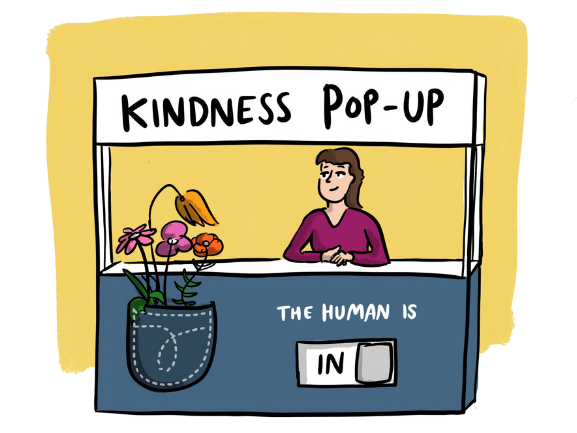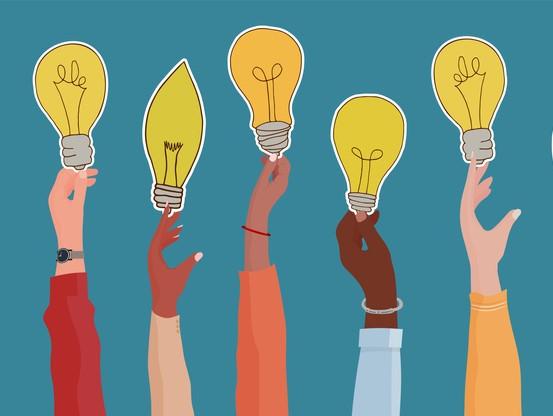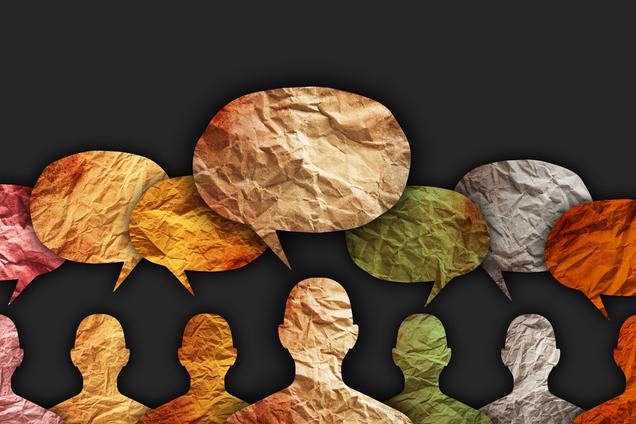
Doing DEI when you can’t use the ‘D’, the ‘E’ or the ‘I’ word

You may also like
The principles and practices of diversity, equity and inclusion (DEI) are under ongoing attack in the US via a government campaign that is as inane as it is insane. Did you know that banned words include “female”, “indigenous”, “disability”, “Gulf of Mexico”, “elderly” and er…“safe drinking water”? Here we suggest some ways you can resist the idiocy and cruelty of the DEI onslaught and keep doing the important work of trying to make higher education a kind, inclusive and equitable place comprising a rich diversity of people.
Sure, DEI was never perfect, and can be performative or tokenistic, but don’t feed the anti-DEI trolls who claim strange things like anti-racist training leads to racism. This is like saying cybersecurity training leads to cyberattacks. Yes, you may click through cybersecurity compliance training like a maniac, shouting, “When will this end?” but you still believe that cybercrime is real and harmful, right? Racism is also very real and very harmful. Fighting it is not some woke trend.
Here we offer a map of not just action but also healing, drawing on Wajeehah Aayeshah’s four Rs of Kindness: resistance, resilience, reimagination and reformation and on our collective experiences of teaching and learning in higher education. However, we are not offering pre-packaged solutions or prescriptions. Real change requires leadership from all levels, particularly from the top.
Lastly, we recommend dark humour as important for self-care. It can be nicely paired with a good dystopia.
Resistance
The fight begins when you refuse to accept that DEI attacks have any rational or moral justification. Resistance is making the commitment to try, however imperfectly, to uphold the respect and dignity of all people, especially those who are most vulnerable. We must remember that we started this not because the system once rewarded it, but because it was the right thing to do.
Resilience
People have been brutally affected by DEI attacks, with projects cancelled, people fired and their life’s work denigrated. Higher education has become less welcoming, less safe and less accessible. If you are affected by this, you should exercise compassion for yourself. Tyranny is not your fault. Be kind to yourself and know that there are also good people out there who want to help you. As you engage in resistance, you will try new strategies and tactics, learn what works and develop resilience.
- Doing DEI when you can’t use the ‘D’, the ‘E’ or the ‘I’ word
- Diversity isn’t a one-off task, it’s a learning journey
- Faculty must stand together to confront the American illiberal peril
Reimagination
As you become resilient, you rediscover your innate creative and imaginative capacity. There are things you can’t change, but you can make contact with your innate wisdom, which knows how to cultivate interconnectedness in the face of hostility. You can find hope.
Practical strategies universities are using (albeit with mixed or temporary success as attacks intensify) have been to rename things that are banned. Think of the DEI war on language not as an unhinged attack on human dignity but as a fun new Wordle! Also, did you know that 500 species of fish can change sex? More importantly, do you think they care what we call them, or if the ocean they swim in is renamed?
The word “belonging” has been used in place of many banned words. Bonnie Stewart’s project on student belonging provides useful readings in this space.
You can replace
- Historically with “chronicled”
- Racist/discriminatory with “separating”
- Equality/equity with “restorative practice”
- Disability with “physical limitations”.
You should think about the power of language, of its ever-changing, living, expressive nature as a unique vehicle to communicate our deepest hopes, desires and values. If you have moral conviction, the right words will find you.
We suggest dignity and respect as cornerstones: respect for everyone, regardless of race, socio-economic background, and respect for “differences”. What if “differences” is banned? Then try “uniqueness”, “variation”, “non-conformity”. How about adopting words from other languages? You might even be able to co-create a vocabulary with students and colleagues as an opportunity to develop practices that consider students as partners.
Malha Muhammed, vice-president for diversity and inclusion at Dublin City University Students’ Union, shared her experiences with us for this piece. She cited varied modes of participation that allow less confident students to speak, especially through language or cultural barriers; students seeing themselves reflected in curricula and learning from perspectives other than their own; and making faculty office hours approachable and flexible.
As sharing preferred pronouns is banned in part of US higher education we suggest learning students’ names instead. This skill can also be a Trojan practice for preferred pronoun usage. More fundamentally, it says: “I care about you as a human being. I want to learn something, however small, about you, and in so doing I affirm my commitment to treat you with respect and dignity no matter who you are or where you come from.”
Understanding is also a powerful word. Understanding starts with positionality, with the phrase: know thyself. Who are you? Not what is your title, but who are you? What is your framework for seeing the world? What are your strengths and weaknesses? Where does your moral compass come from?
Once we understand our positionality, we start offering it to people, to students, to colleagues. There are a few more words that come into play when we do this, “vulnerability” as well as “empowerment”. We make ourselves a bit vulnerable by telling people where we come from. Not when we say “my PhD is in XYZ”. But “I come from this minority background”, or “our people are being persecuted right now”. When we say “I suffer from chronic anxiety and depression”, Or when we say “English is not my first language”. This enables a kinship and offers strength and empowers those who are like us but different. Who can then offer their positionality, or at the very least reflect on it.
Reformation
Mara van du Lugt’s hopeful pessimism asks that “we strive for change without certainties, without expecting anything from our efforts other than the knowledge that we have done what we are called upon to do as moral agents in a time of change”. As we wrote this piece, we saw a video of people in Gaza collecting morning dew on a net for drinking water. We were reminded that we can be inspired by practices of hope that are beautiful because they are small and fragile.
Eamon Costello is an associate professor of digital learning at Dublin City University. Wajeehah Aayeshah is a lecturer in curriculum design at the University of Melbourne.
If you would like advice and insight from academics and university staff delivered direct to your inbox each week, sign up for the Campus newsletter.


